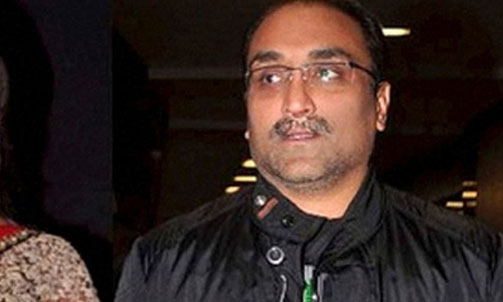AR Rahman is a revolutionary. He isn’t the first. His voice does have the ability to out sing even an orchestrated crescendo of hatred. And so we listen. When he speaks in response to the fatwa issued by the Mumbai-based Sunni organization Raza Academy, against an Iranian biopic (Muhammad: The Messenger of God directed by Oscar-nominated Majid Majidi), we listen.
“What, and if, I had the good fortune of facing Allah (Sbt), and He were to ask me on Judgment Day:
“‘I gave you faith, talent, money, fame and health … why did you not do music for my Beloved Muhammad (sals) film? A film whose intention is to unite humanity, clear misconceptions and spread my message that life is about kindness, about uplifting the poor, and living in the service of humanity and not mercilessly killing innocents in my name.’ …
“Let us set a precedent in clearing conflict with grace and dignity and not trigger violence in words or actions.”
We listen.
The Raza Academy’s fatwa said that Rahman and Majidi would need to re-establish themselves as Muslims. The film, the first of a trilogy depicting the prophet’s life, had the backing of Iran’s leader Ayatollah Khomene’i, but still ran into trouble in Tehran and Cairo. The issue is around the visual representation of Islam’s prophet, a controversial subject in Islam. Even though Majidi has brought with him three-time Oscar winning Italian cinematographer Vittorio Storaro to effectively obscure the prophet’s face through over-illumination.
There are several historical and theoretical explanations for why Islam is against idolatry. The most interesting one, in the context of a discussion on creative expression, is this: because people might start worshipping the image instead of God. God must not be given human form, or carved on stone, because then people would worship that. Instead of feeling personally accountable for ones actions, and serving the poor and oppressed, people would think the idol had magical powers and focus on the idol alone. To save, protect, be the agent and cause.
One remembers the story of Parrhasius, the 5th century painter whose painting was concealed behind a curtain. When his rival (Zeuxis, who had drawn such realistic grapes that birds had flown to peck at them) asked him to reveal the painting, it turned out that the curtain was the painting.

fairnlovely
In Your Fatwa Does Not Apply Here, human-rights activist Karima Bennoune interviews nearly 300 people from 30 countries, ‘from Karachi to Tunis, Kabul to Tehran, across the Middle East, North Africa, South Asia’. These are writers, artists, doctors, musicians, museum curators, lawyers, activists, and educators of Muslim heritage, who defy death threats to produce art. Bennoune’s point is simple: this is the silent face of Islam, crushed under the media-constructed story of a ‘clash of civilizations’. As if the fundamentalists speak for Islam.

midnights-children1
In 2010, there were kids on stage at the Ninth Youth Performing Arts Festival in Lahore. The Eight Festival had been bombed. There had been death threats in 2010 as well. Festival organizer Faizan Peerzada sat in the front row with his young daughter. And said, “Today we are burning our own buildings, killing our own people over an issue of somebody who makes a caricature sitting in a cold country called Denmark.
If this cartoon was seen by Muhammad, he would have had a laugh. As simple as that.”
This isn’t a problem of Islam, or of idolatry. Ashutosh Gowariker’s historical drama Jodhaa Akbar (2008) was initially banned in four north Indian states after protests against its depiction of the Rajput community. A Rajput organization called the Karni Sena sent cinema owners threatening letters written in blood. The Da Vinci Code caused protests worldwide for depicting Jesus as a married man.
Fatwas in the modern world are meant to guide believers in matters that could not possibly have been tackled by ancient Islamic wisdom. Matters like whether it’s okay to consume Coca-Cola (According to one fatwa: yes). Fatwas issued by some schools, like the influential Deoband school, have often angered and confused Indian Muslims.
Girls riding bicycles, sharing photographs before weddings, and women working as receptionists were all deemed ‘un-Islamic’ by this school, and edicts issued against them.
Last year, the Supreme Court of India ruled that fatwas aren’t legally binding. In large part, this was motivated by a fatwa directing Imrana of Muzaffarnagar, UP to consider her husband as her son. Because her father-in-law had raped her. A fatwa that was sought and given by strangers, and caused ‘psychological harm’, in the court’s words, to the ‘god-fearing person’. The Court declared that alternative dispute settlement forums were welcome. But, they have no legal standing to enforce their rulings.
@ShekharGupta Not enforceable maybe but effective.Why there’s a threat 2 the lives of @SalmanRushdie & @taslimanasreen otherwise? @arrahman
— Ransaa (@RangbaajRansaa) September 16, 2015
Recommended
The Raza Academy has appealed to Union Home Minister Rajnath Singh and Maharashtra Chief Minister Devendra Fadnavis asking them to ban the screening of the film. It has also appealed to every Muslim to boycott the film. Already, Rahman’s show in Delhi has been cancelled because of the fatwa issue. Already, there are voices standing by his side.
#IStandWithAR sir. pic.twitter.com/hOTXBwFEj6
— Chinmayi Sripaada (@Chinmayi) September 14, 2015
AR Rahman’s response has won praise and deserves praise. And the controversy has shown us the worst of religion, and the best of religion.
*****



